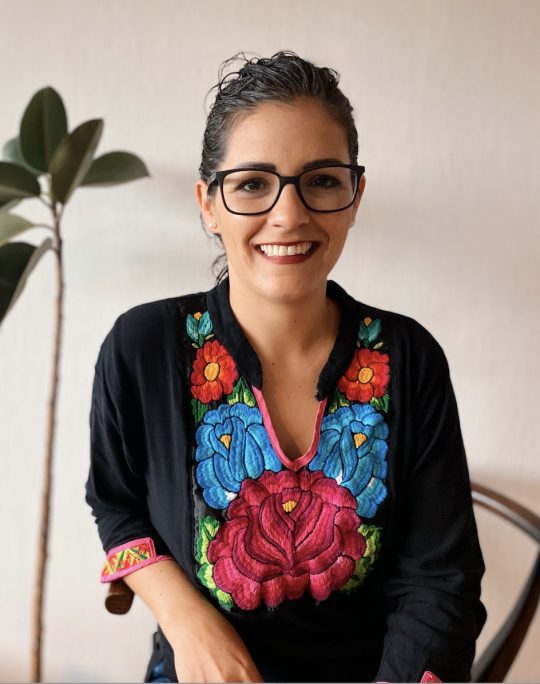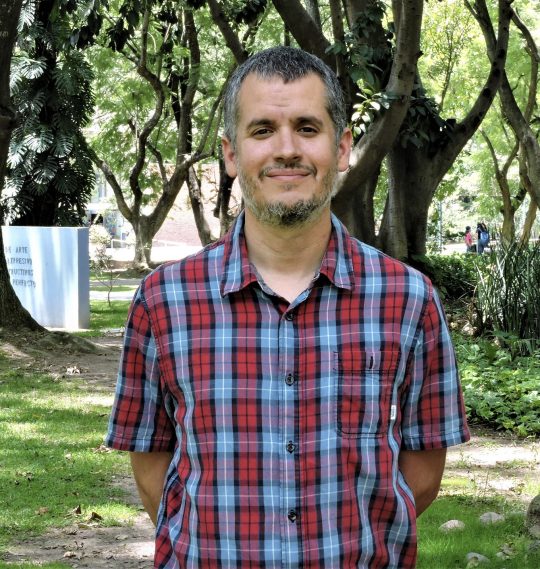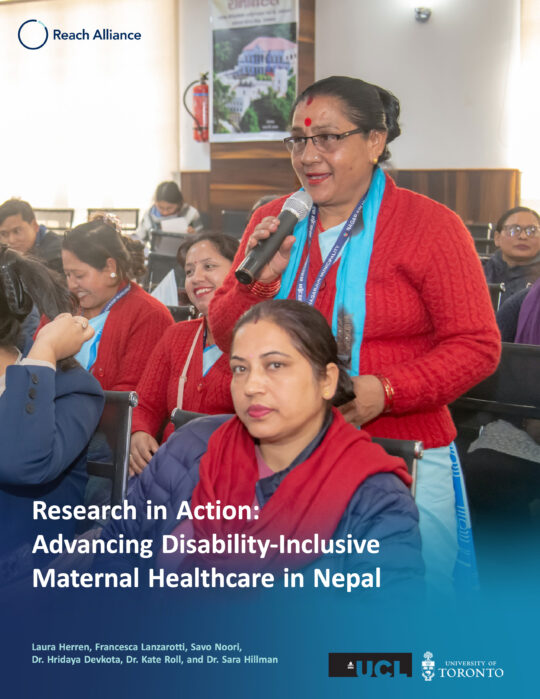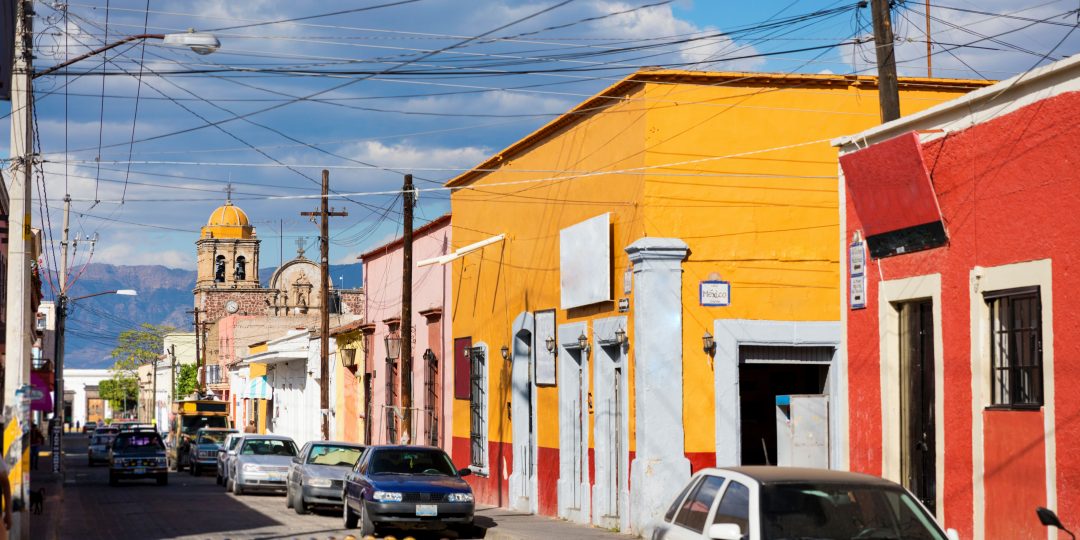Executive Summary
In Mexico, small and medium enterprises account for over 99 and 50 per cent of enterprises and employment respectively. Family microbusinesses with 10 employees or less make up over 97 per cent of these businesses on a national level. Following the designation of Tequila, Jalisco, as a cultural and world heritage site, the socioeconomic fibre of the region is rapidly changing. An increasing influx of tourists provides potential opportunities for a new niche of artisanal family microbusinesses to share their cultural heritage with new customers. Today, 25 per cent of the population is employed by the tequila industry which accounts for most of the income and industrial base in the municipality of Tequila.
We interviewed family microbusinesses, supporting institutions, and subject matter experts to understand the drivers of business sustainability for family microbusinesses in Tequila and to identify recommendations for improvement. We learned that internal factors supporting the sustainability of family microbusinesses include well-defined vision and values; clear business decision making, governance, and structure; and an ability to leverage the family’s unique cultural capital. Our research also suggests that the tequila industry, expanding tequila tourism, and opportunities for collaboration through the existing social innovation programs are external factors shaping business sustainability in the region. Recommendations to improve outcomes for family microbusinesses include working with businesses to identify their unique cultural capital as well as opportunities in the tequila tourism industry, assisting businesses in defining their own vision, values, and decision- making structures, and providing business skills training.
Context: Family Businesses in Tequila
The International Labour Organization (ILO) describes informal employment as all paid work that is not registered or protected by existing legal or regulatory frameworks, as well as unpaid work done in an income-producing enterprise.1 Informal workers do not have secure employment benefits or social protection programs that reduce social and economic risk and vulnerability, such as social insurance and social insurance or assistance.
According to the ILO, nearly 60 per cent of Mexicans participate in informal employment and have no access to social protection.2 The informal sector includes single self-employed workers, those self-employed with family (small household businesses), and unpaid family workers. By contrast, the state of Jalisco differs slightly from the national average with a higher formal employment rate (53 per cent) and 47 per cent informal employment rate.3 This difference is mainly a result of the thriving agricultural and technological industries in the state.
In Mexico, small and medium enterprises (SMEs) referred to as PyMEs (pequeña y mediana empresa in Spanish), are an important component of the country’s economy and are classified into family and nonfamily businesses. They are categorized by size: service enterprises with up to 10, 50, and 100 employees are classified as micro, small, and medium enterprises respectively. These SMEs represent 99.8 percent of total businesses, contribute 52 per cent of GDP, and generate more than 71.9 per cent of jobs in Mexico.4 The predominance of family-owned businesses in poor communities is a response to the need for survival. More than 90 per cent of enterprises in the country are family owned — commercial or corporate entities where ownership and management are controlled by the family. The term also applies to self-employed persons and businesses with a single owner.
Regional economic asymmetries between large enterprises and SMEs, as well as complex informal–formal competitive environments, impact the success of family-owned businesses in rural locations like Tequila. Innovation and resilience — essential for any business enterprise to thrive — have been studied extensively as drivers of business sustainability.5 Although family firms are often assumed to be less innovative, the literature shows that many family-owned businesses are among the most innovative and resilient in their industries. This is in part because non-economic goals affect decision making and contribute to business resilience for family businesses. In spite of a large number of family- owned businesses in Mexico, there is still a lack of geographic-specific literature on resilience and innovation, especially within smaller, family- owned microbusinesses.6
During the past three decades, regions such as Jalisco have experienced rapid economic growth, thereby providing opportunities and additional investment for the development of the limited formal economic sector. Mirroring national trends, micro, small, and medium-sized enterprises represent over 95 per cent of businesses there and generate over 70 per cent of employment opportunities in the state.7 Jalisco is also the leading global tequila producer and was recognized as a World Cultural Heritage and Patrimonial site by UNESCO in 2006 for the agave landscape in the Amatitán-Tequila valley which elevated Tequila’s global reputation.8
The new status ushered in several positive changes for Tequila, including funding to beautify the town, and investment in road infrastructure leading to it. The income associated with tequila tourism has also increased more than tenfold since the UNESCO declaration, from USD 2.5 million in 2005 to 35.4 million in 2011.9 The Ruta del Tequila, which connects Guadalajara with eight towns surrounding the Tequila volcano, is a UNESCO-recognized world heritage site. The Mexican government has designated the town of Tequila a pueblo magico (magical village) and tequila-related tourism is estimated to contribute more than USD 200 million to Jalisco’s economy.10
While this international recognition has become an avenue for economic growth and sustainable conservation of the area, it has also created barriers to the development of neighbouring rural traditional communities and their emerging family-owned microbusinesses. According to the Mexican Chamber of the Tequila Industry (CNIT), Mexico received close to 1 million visits to tequila distilleries in 2019. However, the larger tequila companies such as Tequila Herradura and Jose Cuervo reap the most from the tourist inflow while public and local initiatives remain unnoticed by tourists.
Characterized by ease of entry, reliance on Indigenous skills and resources, small-scale operation, and ability to maintain domestic responsibilities for women, family micro- businesses are an essential economic entry point in poorer communities. Jalisco and the region of Tequila provide a unique context for us to explore the environmental, cultural, and intergenerational complexities that affect enterprising families and their sustainability against the backdrop of the economically dominant tequila industry.
Through a series of qualitative interviews and document reviews, we assessed three family microbusinesses located in or near Tequila (Delicias del Agave, Llamas Honey, and Memorias de Nuestras Raíces). Insights from this research may help strengthen the market position and sustainability of small businesses in the region so that they are better positioned to leverage the opportunities for long-term growth. We also hope this study will help contribute toward progress on the Sustainable Development Goals (SDGs), especially SDG 8 (Decent Work and Economic Growth), SDG 10 (Reduced Inequalities), and SDG 5 (Gender Equality).
A NOTE ABOUT GENDER
In Mexico, like in many countries, women struggle to access financial resources, credit, and training and bear the double burden of household responsibilities in addition to any economic endeavours. This is largely tied to socio-cultural norms rooted in machismo and traditional gender roles. Women invest their labour into family businesses owned by their husbands but do not reap benefits proportional to their contribution. Economic necessity, absence of financial alternatives, and traditional ideology mean women are sidelined in matters of business strategy.
The government of Mexico recently reaffirmed its commitment to local economic empower- ment of women through the Presidential Declaration of the Pacific Alliance on Gender Equality in 2020. While initiatives to support gender equality are on the rise, there is still a lot to be done in Mexico to provide a level playing field for women in entrepreneurship.
About Tequila, Mexico
Tequila is located 50 kilometres from Guadalajara, the financial and industrial capital and second- largest city in Mexico. This distance is covered by two-lane highways that become easily congested, so travel times between the town and the capital usually require more than an hour. The municipality, one of the 125 in the state of Jalisco, has a population of 44,353.
One-third of Tequilans are considered to live in “moderate poverty,” defined as a person experiencing one to two of the six indicators of social deprivation (educational lag, access to health services, access to social security, quality of living spaces, basic housing services, and access to food) according to the National Council for the Evaluation of Social Development Policy (CONEVAL).11 Only a quarter of the population has attended or is attending postsecondary school and another quarter has reached only primary school as their highest level of education. Internet access in Tequila is below the national average at 52 per cent. However, the penetration of cell phones is on par with the national average at 90 per cent.
Figure 1. Map of Tequila and the surrounding area with business locations and important locations in Tequila marked. (Credit: Natalie Enriquez-Birch)
Tequila’s unemployment rate sits at 3.1 percent, which is below the national average at 4.7 per cent in 2020. Men are more likely to be employed than women: 78.9 per cent of men versus 46.6 per cent of women are economically active.12 While statistics on the informal economy are not available for the municipality, available data for the state of Jalisco indicate that small and medium enterprises (SMEs) make up 99.8 per cent of businesses and between 50 and 60 per cent of employment.13 The economy is predominantly based on agriculture with close to 50 per cent of people working in that sector. Another 25 per cent of the population are employed by the tequila industry which accounts for most of the municipality’s income and industrial base. In 2020, less than 40 per cent of the population in Tequila was covered by social protection which suggests a high rate of informal employment since social protection is mostly accessible to formally employed workers.
Participants and Key Actors
Family Businesses
Delicias del Agave is a family microbusiness founded 10 years ago that is located in the town of Tequila. It aims to preserve the tradition of the jimadores — farmers who inherited through generations agricultural knowledge on how to preserve and cultivate the agave plant. While the entire tequila industry still depends on these farmers’ knowledge for agave harvesting, the jimadores’ traditional and intergenerational characteristics are in danger of being lost. The family that owns Delicias del Agave is currently in the process of adapting a house to be a place of both production and commercialization of their products which they handcraft and derive from the agave plant.
Llamas Honey is a micro family business located in El Salvador, in the Sierra Madre, that was established in 2016. They sell honey, royal jelly, propolis, pollen, wax, soaps, and pollination services. Their products are mainly sold in the local market in the town of El Salvador, in Tequila, and in Guadalajara. They are currently seeking to boost their production processes and diversify their access to the market through different production and marketing strategies.
Memorias de Nuestras Raices is the first cultural route that proposes to disseminate the work of three social actors who dedicate their collaboration to safeguarding the history and traditions of Tequila. This proposed collaborative local eco-tourism project is composed of an eco-hiking path to climb the Chiquihuitillo hill, a visit to a small family-owned restaurant where you can taste some characteristic dishes of the region, and finally visiting local murals that help preserve the history of the town of Tequila. At the time of writing this report, the route was not yet in operation because of misaligned visions between the two families who make up the route. One family is currently operating their side of the route individually, composed of the eco-hiking path and the family-owned restaurant. The Chiquihuitillo ranch ecotourism project, which includes the eco-hiking path, hopes to offer tourists an experience where they can learn about the ecological diversity and history of the region. The project was established in October of 2017. Established in 2018, the Cocina de Evalia Rivera, a traditional food business, is located in Tequila at the family’s home.
Key Actors
The Beckmann Foundation was established in 1998 by Juan Francisco Beckmann Vidal to preserve the customs and traditions of the region, provide support to community programs, and create youth leadership programs. The foundation is committed to the development of sustainable projects and programs in Tequila. As part of efforts to strengthen family enterprises rooted in the cultural heritage of the region, the Beckmann foundation in collaboration with several institutions and nongovernment organizations (NGOs) developed a social innovation program to support family microbusinesses in Tequila with counselling and connection to educational institutions.
ITESO University, also known as “Universidad Jesuita de Guadalajara” was founded in 1957 and is located in the city of Guadalajara, Mexico. In collaboration with the ITESO Foundation, the Universidad Jesuita de Guadalajara demonstrates its social commitment through the implementation of professional application projects (PAPs) in which students propose solutions to different problems identified in their communities. PAP students have worked closely with artisans, small Tequila producers, and family businesses to propose strategies to complement the development of these businesses.
Determinants of Family Business Sustainability
We recognize that businesses are not homogenous so our multifaceted definition of sustainability includes aspects of financial security, positive social impact, environmental dimensions, and the preservation of traditional practices over time and generations. To guide our understanding of operationalization, management, and sustainability of family businesses we referred to two commonly used business frameworks: the resource-based view and the stakeholder theory. While ubiquitous in the business literature, these theories have primarily been developed and used in Western contexts and may not be directly translatable to the context of family businesses in Tequila, Mexico. Although they were used as a guide to frame our study, develop our data collection instruments, and guide analysis, we were cognizant of their limitations.
Figure 2. The resource-based view framework.
Resource-Based View
Broadly speaking, the resource-based view suggests that firms with resources that are valuable, rare, not easily imitable, and properly utilized by the organization will be able to create a sustainable competitive advantage.14 These resources can be organized into a few main categories: physical (technology, capital, equipment, property, etc.), human (education, experience, knowledge, etc.), and social (networks, connections, relationships, etc.).15
We used the concept of “familiness” or family capital — which refers to the unique relational advantages that family businesses possess16 compared to nonfamily businesses — to broaden our understanding of resources and capabilities. Through our interviews we aimed to form insights about the uniqueness of the resources possessed by family businesses, and more specifically how the presence or absence of these unique resources could act as enablers and barriers to the success and sustainability of the businesses.
Stakeholder Theory
Unlike the resource-based view which has some applications in emerging economies, there was a gap in the literature analyzing family businesses using stakeholder theory, especially outside western economies. Stakeholder theory emerged from a shift in the corporate world from the previous overemphasis on shareholder value to now consider and balance the priorities of multiple stakeholders when making decisions, which includes all groups and individuals that are affected by the operations of the business. The stakeholder theory considers how the power and interests of these different individuals and entities may affect success. After mapping stakeholders (i.e., those who hold an interest in the business) based on their power, interest, and overall values, we created the following chart, allowing us to determine the most crucial stakeholders to consider from the businesses’ points of view. These are the stakeholders in the top right quadrant of the chart, for instance, the family members involved in the business.17
We aimed to better understand if and how these stakeholders’ influence are impacted by the strategic moves made by the family businesses, with a particular focus on the families, competitors, the tequila industry, and supporting nonprofit organizations.
Our Approach
Following our document and literature review, we interviewed owners of small family businesses in Tequila, leaders of nongovernmental organizations supporting small and medium enterprises in Jalisco, and industry and academic experts. We conducted interviews with participants from the Beckmann Foundation, ITESO, Universidad Tecnológica de Monterrey, Rotman School of Management, Crea Comuna MX, MUMO, and la Muestra Gastronómica Experimental Chiapaneca.
Figure 3. Stakeholder map for family businesses in Tequila.
We tailored our interview questions according to primary and secondary participants. Primary participants were the family businesses, while all other participants were secondary. An interview guide structured the interviews. Relevant factors affecting family business sustainability and position were outlined in advance to allow us to probe respondents situationally. We tailored our questions to each type of participant, accounting for their specific enterprise, expertise, and experiences. Interview questions were framed around the stakeholder and resource-based theories.
Our research also employed a targeted approach that included purposely selecting and engaging Mexican women, especially in the planning and data collection of our study. We engaged with female Mexican activists, family business experts, and business owners. We ensured that all our business interviews included one female participant.
We conducted 13 semi-structured interviews in both Spanish and English with technological support from ITESO between April 7 and June 10, 2022. We identified relevant businesses based on the Reach Alliance’s established relationships with ITESO and used purposive and snowball sampling to recruit secondary participants. Because of the COVID-19 pandemic, we could not conduct in-person interviews in Jalisco, so the interviews were conducted virtually. After transcribing the interviews, we identified recurring themes from the literature review and interviews and connected these to stakeholder and resource-based theories.
Factors in Success and Failure
Risks to the sustainability of family-owned small business involve challenges in management, obtaining funding, and remaining competitive.18 These challenges are the result of both internal and external factors. Over 70 per cent of family businesses do not make it past the three-year mark in Mexico.19 This high attrition rate necessitates identifying and evaluating the internal and external factors associated with long- term sustainability of small family businesses.20
Internal Factors: Supporting the Families and Businesses
Vision and Values
Establishing the visions, goals, and values of the businesses is essential to understanding the best practices that will optimize each business’s sustained success. People we interviewed established that businesses’ definitions of success are not homogenous. Their most common goal was to establish a business that would support the family and prevent the next generation from facing economic challenges. Unsurprisingly, family was the biggest driver for establishing the business. However, participants insisted that continuing the business should not come at the expense of the family, including future generations.
In other words, passing down the business is not always an indicator of success. Each business has its own long-term vision based on the desires of both the founders as well as future generations. Participants also envisioned sharing their cultural heritage and promoting environmental sustainability as a part of their business and linked being able to provide this to their success. In some instances, participants noted that present survival and provision for the family was the immediate concern and notions of artisanal viability and culture, while romanticized in the region, were secondary goals. As first-generation businesses, succession planning is not top of mind among participants, which is in line with the literature on small family businesses.
Decision Making, Governance, and Structure
People expect that the values and practices of the family will become the values and practices of the business. The family’s structure and organization can provide a competitive edge to a family business because families share established cultures and values which then permeate the business. Participants voiced that one advantage to being family owned is the freedom to make decisions without external influence.
Resources: Cultural Capital
There are low barriers to establishing a family enterprise. In addition to physical, human, and social capital, a unique feature of small busi- nesses in Tequila is that the knowledge passed down intergenerationally in the family, which we define as cultural capital, has market value in the context of tourism. There is an opportunity to maintain the knowledge, share it with foreigners, and also make a profit. Most businesses leveraged their cultural heritage — some thanks to the region’s cultural heritage status while others leveraged their family culture (e.g., agave farming, corn farming, and cooking). For example, Memoria de Nuestras Raices offers an experiential tour where participants learn about the ecology and history of the Tequila region, then share a traditional meal. Both the husband and wife who facilitated this tour explained that the knowledge used to make it possible was passed down to them from their families.
Because many businesses were established out of need, learning new skills to promote business visibility was often not a priority. Business owners preferred to rely on existing skills and resources such as farming, agave planting, and cooking. They sometimes expressed an interest in more immediate marginal economic results at the expense of a wider target market, more long- term business growth, and financial results. Those businesses where the owners had pursued some business education or had collaborated with partners to improve their marketing skills (e.g., through social media marketing) admitted that they gained new, relevant perspectives that they had not previously considered such as positioning their culture as a business product targeting a foreign audience via cultural tourism.
Creating an Environment to Support Family Microbusinesses
Tequila Industry, Tourism, and Market Landscape
Political and economic power is concentrated in the tequila industry, which also dominates when it comes to ideas for how to create a new experiential tourism in Tequila. Depending on the alignment with the operations and visions of the tequila industry players, small businesses may or may not benefit. For instance, with Tequila being a UNESCO world heritage site with the “Pueblo Magico” vision, larger players might focus their vision on tequila tourism, which may not align with the vision and values of smaller businesses.
Figure 4. Traditional cooking tools at La Cocina de Evalia Rivera at the family’s home. (Credit: Natalie Enriquez-Birch)
Perspectives vary on the impact of the tequila industry. One business owner stated that the tequila industry had a negative impact on their business (which is primarily based on environmental sustainability) due to the effects that fertilization and deforestation had on the region’s flora and fauna. That said, the same business also benefitted from exposure to the tourists who are attracted to the town by the tequila industry.
Several participants noted that the community had negative associations with increased tourism following the region’s World Heritage designation. The changes in land use caused by the tequila industry, subsequent erosion of cultural practices, and increased drunkenness of tourists are considered an unwelcome consequence of tourism and development that the community feels they have not asked for. Some identified the potential opportunities and benefits of tourism that many small family businesses are not able to leverage because they lack adequate resources or support. As one interviewee put it, “Tourism provides many benefits. There is a lot of money for the town and in one way or another it is good for all of us. Some people benefit more because some people do not have enough resources to start a business and offer something. Only a few people are taking advantage of tourism.”
Collaboration and Social Innovation
We found limited evidence of collaboration between the businesses. Most of the study participants mentioned that competition, differences in vision and family values, and mistrust limited collaboration. Some said that working with other family businesses could dilute values or cause jealousy, given how passionate each owner is about their mission. Another factor is that among family businesses in Mexico there tends to be a culture of resistance to collaboration so participants do not always know how or who to ask for help, reflecting socio-cultural norms in the region. However, collaboration is possible in contexts where businesses provide complementary services.
We discovered diverse perspectives on collaboration and innovation when working with external partners such as NGOs and educational institutions that provide financial and technical assistance to businesses. Through its social innovation program, the Beckmann Foundation collaborates with a diverse group of organizations, including major tequila companies, nonprofits, and government agencies, to support social and economic development. These organizations support SMEs in the region by providing capacity building and technical support. We found that while these organizations hold regular meetings, the representatives of the family businesses we interviewed were not present at these high-level meetings convened to discuss the interests of the community. This contributes to further misalignment of social innovation partners and family business goals which can be detrimental to the business. One participant described how at least one business had folded as a result of misalignment between supporting partner vision and values and the business values.
Figure 5. Product from Delicias del Agave on display at a local market in Tequila. (Credit: Natalie Enriquez-Birch)
We found that the idea of social innovation is largely driven by external players such as the Beckmann Foundation and other institutions committed to improving the social economic welfare of the region in line with the SDGs. Family micro-business owners do not always see or understand how their values and motivations are aligned with the wider programs aimed at improving the development in the region. However, families where one or more members had received further training and capacity building through the social innovation partners were more likely to have positive opinions about innovation. For example, Memorias de Nuestras Raices received training from ProEmpleo, a nonprofit organization that provides training and business consulting for the creation and improvement of their micro-enterprises and self-employment. The microbusiness participated in Taller Emprende, a two-phase program that includes one month of business plan development and seven months of consulting.
Lessons Learned
Vision and Values
Having a unique vision and value proposition as a small business could be an advantage, but without the right resources or visibility, it may become difficult to sustain given the unique human capital, unique target audience, and lack of awareness about the product, which ultimately affect business success. For instance, one of the businesses focused on sustainability and the desire to share knowledge of apiculture (beekeeping), but in order to pass on the business they need to find someone else who possesses similar knowledge, whether or not they are part of the family.
Decision Making, Governance, and Structure
Business ownership reflects and reinforces cultural norms. All businesses were founded by the male head of the family with the wife playing a supporting role. Some interviewees referred to the businesses as belonging to the husband and not the family. Husbands were responsible for the businesses’ strategic decision making. While we did not have access to financial records, the literature suggests that inclusive decision making improves business processes and influences business growth.21 This was supported by our interviews with experts. Those families where the wife had a more active role in the business had broader goals such as intergenerational aspirations and establishment of multiples ventures catered to the strengths of the family members.
Resources: Cultural Capital
Small businesses in Tequila can further leverage the UNESCO heritage status as well as local customs, norms, and heritage for profit.
Figure 6. Two of Llamas Honey’s honey varieties: mezquite and multifloral. (Credit: Natalie Enriquez-Birch)
However, artisanal businesses are often less visible to the tourist audience than the larger, more prominent tequila industry is. Most participants preferred working with local audiences instead of tourists. Many businesses do not have the tools to leverage their social capital or network to grow the business, resulting in challenges for some. Although businesses possess significant cultural capital, there is a gap in awareness/ knowledge/skills to translate this capital into a business. Visibility is an important driver for social capital. Resource rarity — as in the case of the small business that possesses unique, cultural knowledge — can be a barrier when businesses lack visibility to promote their unique value proposition, or the talent (human capital) to continue the business in the long term. For example, Memorias de Nuestras Raices’ unique value proposition is a cultural tourism experience that differs from the expectations of tourists who come to Tequila. However, because the business does not have the resources to generate visibility, the uniqueness of this offering becomes a barrier to entering the tourist market.
Tequila Industry, Tourism, and the Market Landscape
Tourism has immense potential to improve economic development in the region but can also widen existing inequities. If not developed with the community in partnership, new tourism will serve only the few and mostly benefit larger players in the Tequila tourism industry, leaving behind small businesses. Industries that have large up-front capital investment or unique expertise have more barriers to entry, increasing the direct competition between larger players in the Agave industry and small family businesses. For example, most tourists go on the Herreras and Jose Cuervo experiential routes, neglecting the smaller family-owned cultural routes that cannot compete with the more established players’ visibility.
Collaboration and Social Innovation
Partners supporting family businesses lack effective communication with the businesses themselves. For example, some businesses had direct connection with the Beckman foundation and knew who to contact for support, while others were not entirely sure of the resources available via supporting NGOs and institutions. While there are more than 50 programs supported by collaborating institutions and organizations under the Social Innovation Program, we did not find evidence of the organizations working together and one interviewee described another organization as a “competitor.”
Next Steps
Vision and Values
Capacity-building efforts for family microbusiness owners should include awareness of the link between the family and business’s values, structure, and organization. This is especially important in a patriarchal society where the founder and strategic decision maker of the business is also the male head of household. Family businesses should intentionally create spaces for communication so that values can be passed down across business members and intergenerationally.
Decision Making, Governance, and Structure
Decision-making and governance processes are strongly influenced by cultural patterns that originate from the family structure — which in Mexico reflect the patriarchal societal system where men are expected to be decision makers and providers, and women engage in domestic and supporting roles. Businesses would benefit from identifying the key skills each person can bring to the table to be compatible with each other instead of dictating business roles solely by gender roles. Leveraging the strengths of each family member enables specialization and ultimately growth as each family member optimizes productivity and output in their area of specialization.
Resources: Cultural Capital
Community connections and, increasingly, social media are key to increasing awareness to target consumers and increasing visibility. To amplify and maximize their existing cultural capital, it is advantageous for family businesses to engage in training to acquire business-specific skills. Training in marketing would improve the businesses’ visibility both inside and beyond Tequila.
Tequila’s Industry, Tourism, and Market Landscape
Small family businesses need support to tap into the tourist market and the potential that it offers needs to be communicated to them. Leveraging educational opportunities can increase capacity in the long term. Most of the families we interviewed did not have postsecondary education. One business owner who pursued informal business education through collaboration with NGO partners commented on the opportunities afforded by his education. His education on marketing, branding, and networking enabled the business to create a niche market with a desire to show that “agave is more than just tequila.”
Partners and the government must acknowledge that not all businesses readily fit into tequila tourism and make space for businesses that do not fit. Businesses benefit from training that helps them to establish themselves. Since most businesses started out of need, short-term survival takes priority over the growth of the business, and they do not always have the capacity to make long-term investments. This is particularly true for women in business who often have greater responsibility for the family than their male partners do.
Collaboration and Social Innovation
Supporting partners in the region need to strengthen opportunities for collaboration with small family businesses. While partners seem to share the same vision, communication and transparency is ineffective so efforts are sometimes duplicated or wasted. Actors working with small businesses in the region should be involved in sharing ideas and practices to ensure that best practices and lessons are shared across partners.
Limitations
Because none of the researchers were located in Mexico during the study period, it was important to connect with different stakeholders in the region to help us better understand the cultural, social, and economic context that affects the sustainability of small family-owned businesses in Tequila. Our limited access to the local context was mitigated by the support of our partnership with ITESO, PAP students, and by interviewing local activists, businesses, and government institutions.
Our interview process also had constraints. Because the pandemic prevented travel to Mexico, all our interviews were conducted virtually. And since most of the businesses did not have reliable Internet access, they depended on others for access to the Internet for the interviews. This affected our interviews in two ways. First, we were unable to conduct follow-up interviews, which may have prevented us from gaining additional insights about family businesses’ sustainability. This also meant we could not always control the interview’s setting. For example, in cases where interviewees were interviewed in tandem, wives may not have wanted to say something negative about their husbands, or business owners may have been wary about speaking negatively about supporting NGO whose spaces they were using for the interviews. It was crucial for us to consider possible biases of their responses in the presence of certain actors in the venue of the interview.
We were also limited by the time availableto complete the study. Specifically, we were not able to interview all potential participants which means our analysis may be missing key perspectives and insights. We wanted to interview representatives from the municipal government, particularly members of the office of development and evaluation, to gain a better understanding of the available policies and their evaluation. However, because of the ongoing changes in political climate we were unable to do so. We did interview social advocates, NGOs, and implementation partners who work closely with the government and also reviewed the literature to gain insight on relevant government policies and their implementation. However, by not speaking to government officials we are missing a crucial perspective.
Our research identified the intergenerational component of family businesses as key to understanding their long-term sustainability. The small businesses involved in our interviews were all first-generation family businesses. Participants in the study were very committed to their businesses and attaining a measure of financial independence for their families. The structure of the family business mainly included the male head of the household, with unpaid support from his wife and other family members (including children, parents, and siblings) as needed. While most of the family businesses interviewed share an aspiration to pass along the business from one generation to another, we could not assess how the intergenerational succession component might affect their long-term sustainability.
Recommendations
The tequila industry can serve as both an enabler and a barrier to family microbusinesses in the region, depending on how aligned the businesses are with its goals and with the burgeoning tequila tourism in the region. The family and their unique cultural heritage can provide a competitive advantage in the tequila tourism industry. However, most family businesses do not have the required organization and strategies to identify and leverage the opportunities presented by tequila tourism.
Additional barriers facing family microbusinesses in Tequila include: finances, education, business skills, separation of family/business, housework, and transportation. Here is what would address these barriers:
- Helping businesses define their own vision and values can help them better communicate their needs to other stakeholders and inform strategic decisions (e.g., succession planning, environmental sustainability, etc.).
- Investing in family well-being along with business success allows companies to better utilize the unique resources and capabilities they possess as a family (e.g., family connections as social capital or unique knowledge as human capital). For instance, businesses that had more equal involvement of the husband, wife, and children were able to leverage each of their unique skills. Further emphasis on this can also help businesses better manage gender/power dynamics when it comes to governance and formal business processes.
- The support of large external organizations in both the public and private sphere should balance individual businesses’ values and vision. For instance, within large nonprofits or supporting organizations, having a decentralized structure allows for better resolution of issues and maintains more touchpoints with the businesses. They also have opportunities to provide more hands-on training and education opportunities to help business owners build human capital. The scale of these organizations can also help bring visibility to businesses that align with their visions. Family micro-enterprises may struggle to establish their position in the tourist market. Major tequila producers, government bodies, and nonprofit organizations must bridge the private and public spheres to create a position in the market for these family businesses to have a voice when larger decisions are made.
- Even beyond these organizations, there are so many resources that businesses are not aware of, so by mapping and sharing them, businesses can better understand what opportunities exist to help address their needs (e.g., financial, educational, technological, etc.). For instance, knowledge of educational and training opportunities helped certain businesses build unique human capital, but without awareness, not all business owners were able to take advantage of such opportunities.
Future Research
Initiatives that support family micro-enterprises, such as Fundación Beckmann’s Social Innovation model programs and ProEmpleo, should be examined for opportunities and threats to supporting family micro-enterprises. Further research would expand the number of businesses to interview and improve upon the relationship between the researchers and each business. This would best be accomplished through in-person research in Jalisco. Comparing business relationships can lead to additional insight about the connections between family and business traits.
Acknowledgments
This research was made possible through the Reach Alliance, a partnership between the University of Toronto’s Munk School of Global Affairs & Public Policy and the Mastercard Center for Inclusive Growth. Research was also funded by the Ralph and Roz Halbert Professorship of Innovation at the Munk School of Global Affairs & Public Policy.
As researchers we acknowledge our position as settlers on the land on which the University of Toronto operates. For thousands of years, it has been the traditional land of the Huron-Wendat, the Seneca, and the Mississaugas of the Credit. Today, this land is still home to many Indigenous people from across Turtle Island and we are grateful to have the opportunity to work on this land.
This research was made possible by Instituto Tecnológico y de Estudios Superiores de Occidente (ITESO), Universidad Jesuita de Guadalajara, and through the Reach Alliance. We express our gratitude and appreciation to ITESO Professional Application Project (PAP) students for their support of our research efforts: Elena Davalos, Sarahí Muro Puente, Alejandra Zúñiga Rivera, and Sofía Nicole Castro Díaz de Sandi. We are grateful to those we met and interviewed for sharing their insights with us. We also thank the following organizations: Llamas Honey, Memorias de Nuestras Raíces, Delicias del Agave, Beckmann Foundation, and Tec de Monterrey. We are also grateful to ITESO professors: Andrea Monica Fellner Grassmann, Nora María Samayoa Aguilar, Silvia Rebeca Acevez Muñoz, and Gregorio Leal Martinez for their guidance and support. This research was vetted by and received approval from the Ethics Review Board at the University of Toronto. The research was conducted virtually during the COVID-19 pandemic.
MASTERCARD CENTER FOR INCLUSIVE GROWTH
The Center for Inclusive Growth advances equitable and sustainable economic growth and financial inclusion around the world. The Center leverages the company’s core assets and competencies, including data insights, expertise, and technology, while administering the philanthropic Mastercard Impact Fund, to produce independent research, scale global programs, and empower a community of thinkers, leaders, and doers on the front lines of inclusive growth.
MUNK SCHOOL OF GLOBAL AFFAIRS & PUBLIC POLICY
The Munk School of Global Affairs & Public Policy at the University of Toronto brings together passionate researchers, experts, and students to address the needs of a rapidly changing world. Through innovative teaching, collaborative research, and robust public dialogue and debate, we are shaping the next generation of leaders to tackle our most pressing global and domestic challenges.









